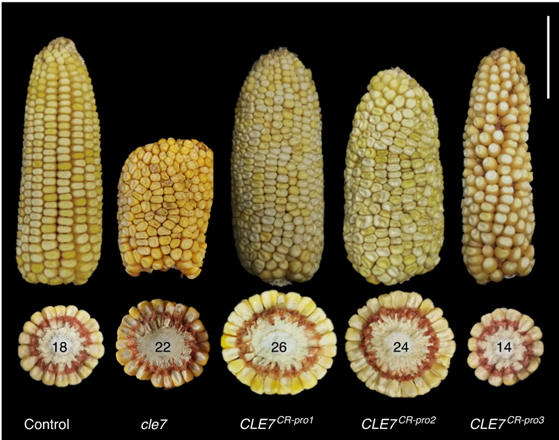
Enhancing grain-yield-related traits by CRISPR-Cas9 promoter editing of maize CLE genes (Nature Plants)
Plant Science Research WeeklyDuring domestication of maize, one of the favorable traits was meristem size. Understanding the genetic circuit of maize meristem development and engineering for crop productivity are important from an agricultural perspective. In this article, Lie et al. used CRISPR-Cas9 to edit the promoter regions…
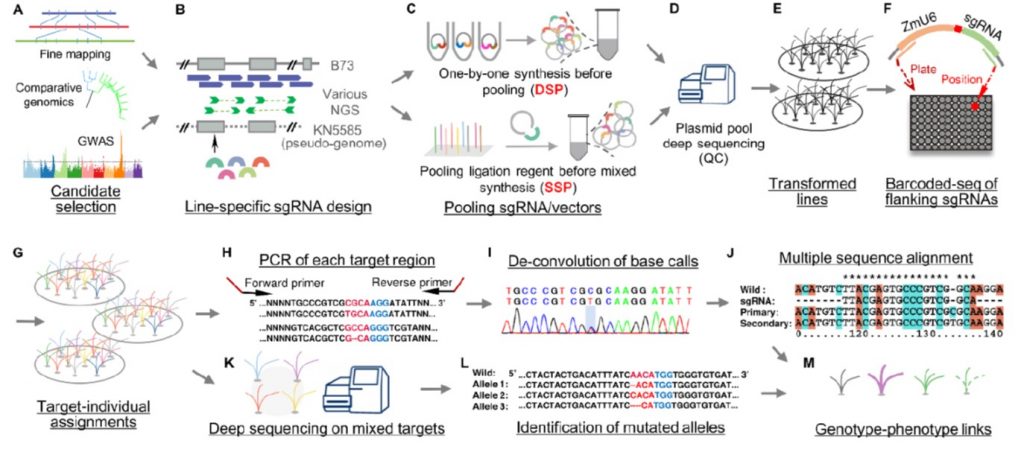
High-throughput CRISPR/Cas9 mutagenesis streamlines trait gene identification in maize (Plant Cell)
Plant Science Research WeeklyMaize has provided some fascinating mutants and developmental insights, but its genomic complexity has made it more difficult (for example as compared to rice) to identify agronomically important genes. Liu et al. describe a new high-throughput method to integrate forward- and reverse-genetics to identify…
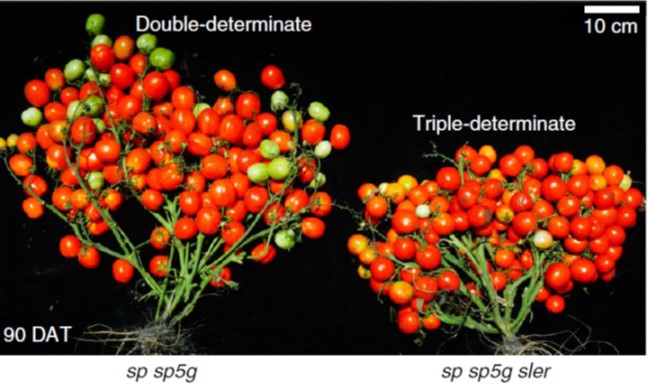
Rapid customization of Solanaceae fruit crops for urban agriculture ($) (Nature Biotech)
Plant Science Research WeeklyNumerous genes have been identified that modify shoot architecture, which has allowed breeding of varieties for specific purposes and environments. Here, Kwon et al. describe how they have used gene editing to modify several of these genes to produce tomatoes and groundcherries that are compact and rapid…

Tissue-specific Gene Elimination in Plants
Research, The Plant Cell, The Plant Cell: In a NutshellDecaestecker and Buono et al. develop a system for tissue-specific gene knockout to enable phenotypic analysis of context-specific gene function.
Plant Cell https://doi.org/10.1105/tpc.19.00454
By Ward Decaestecker, Rafael Andrade Buono, Moritz Nowack and Thomas Jacobs
Background: As plant molecular…

Linking CRISPR-Cas9 interference in cassava to the evolution of editing-resistant geminiviruses (Genome Biol)
Plant Science Research WeeklyCRISPR/Cas9 is a promising gene editing tool that has already been successfully used to modify many plant genes. In these applications, the gene editing machinery is transiently employed to make a stable genomic change which is then passed on to the progeny. A different application is to use CRISPR/Cas9…
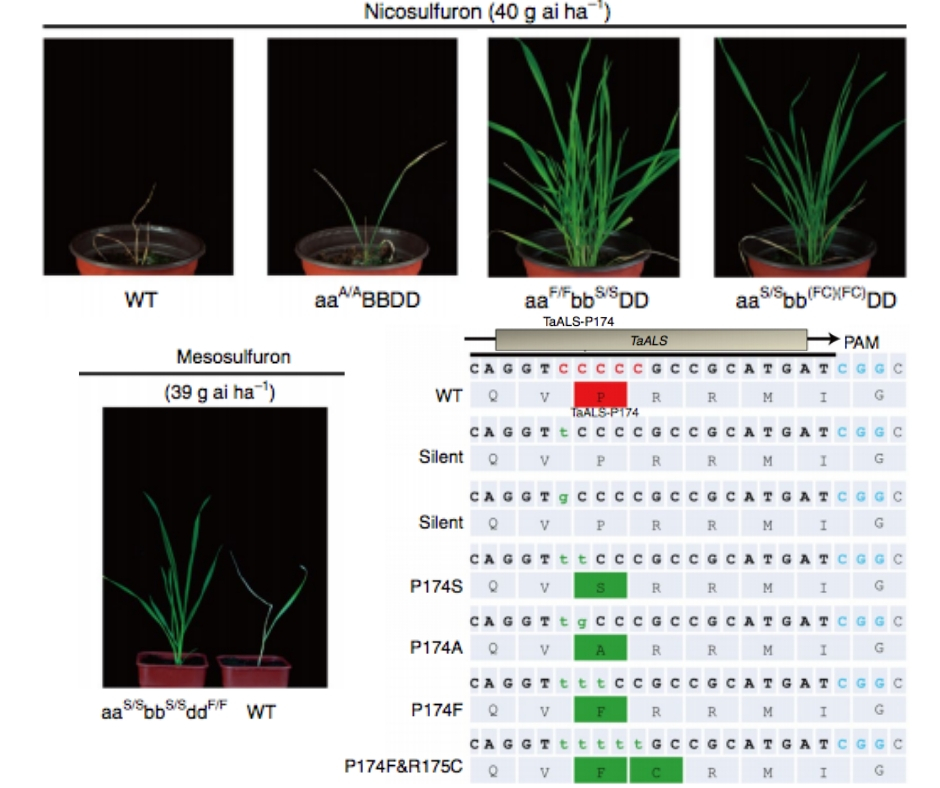
Generation of herbicide tolerance traits and a new selectable marker in wheat using base editing (Nature Plants)
Plant Science Research WeeklyNowadays, weeds represents a major problem to agriculture due to the limited availability and expense of tools to manage them. Using new technologies to create herbicide-tolerant, non-transgenic varieties could improve weed control. Here, Li et al. analyzed multiallelic editing of the wheat TaALS (encoding…
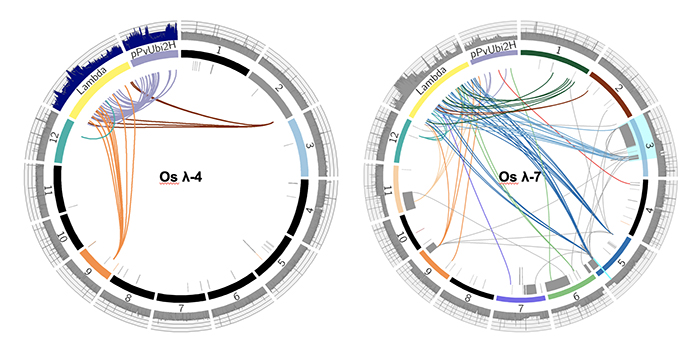
Impact of Biolistic Transformation on the Genome
Research, The Plant Cell, The Plant Cell: In a NutshellLiu et al. show that biolistic transformation can cause extensive damage and rearrangements, including deletions, duplications, chromosome fusions, and copy number variations. Plant Cell https://doi.org/10.1105/tpc.18.00613
By Jianing Liu and R. Kelly Dawe, Department of Genetics, University…

